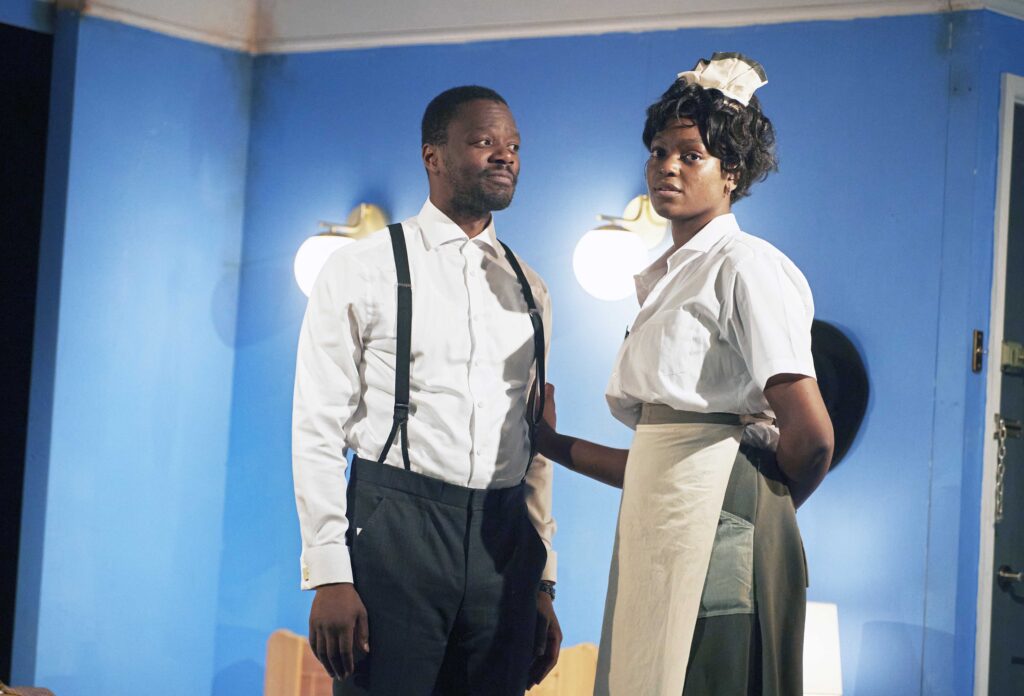Yvonne Arnaud, Guildford – until 21 May 2022
Reviewed by Antonia Hebbert
4****
Memphis, Tennessee, the night before 4th April 1968. In room 306 of the Lorraine Motel, Dr Martin Luther King Jr is restlessly trying out his speech for the next day. He has been campaigning for civil rights for years, suffering arrests and assassination attempts. He’s hugely famous, but at this moment he’s alone with his hopes, fears and uncertainties. We get a sense of the strain he is under as he checks the phone for bugging devices, then calls room service for coffee.
And in bursts the cheeky, chirpy, fabulous chambermaid Camae, with coffee, cigarettes and bags of charm. King is enthralled and infuriated. He thinks she may be a honeytrap, but things take a much more interesting turn. Via flirting, shouting, pillow fights and a hotline to God (black and female), Camae and King explore his passion to make America better, his flaws, ambitions and self doubts. Ultimately Camae gets King to confront his imminent death, and accept that he must ‘pass the baton’.
Written by Katori Hall, The Mountaintop won the Olivier Best New Play Award in 2010. Its name and inspiration come from King’s eerily prescient speech on 3rd April, the day before he was assassinated. ‘I’ve been to the mountaintop. … And I’ve looked over. And I’ve seen the Promised Land.’ We know that the play foreshadows King’s death, but it’s actually bright and funny. This is King (played by Luke Wilson) as a very human hero – he’s troubled and anxious with smelly feet and faltering marriage, but all this makes him more truly heroic. Boni Adelyi is simply enchanting as Camae, somehow managing to be authoritative, vulnerable, cheeky and profound in quick succession. She graduates from Guildhall School of Music and Drama this year, and this is her hugely impressive professional debut.
Sandra Falase’s set has a lot of charm too – a 1960s room, suspended in the shadowy stage. Near the end, Camae steps out of the room space and gives a roll-call of those who will take up the civil rights cause. It’s rather unsubtle compared with what has gone before, but poignant too – this is struggle that is far, far from over.
On a more boring note, sit near the front and centre if (like me) you have any hearing problems – the Yvonne Arnaud doesn’t have the clearest sound, and this play is strongly accented.

